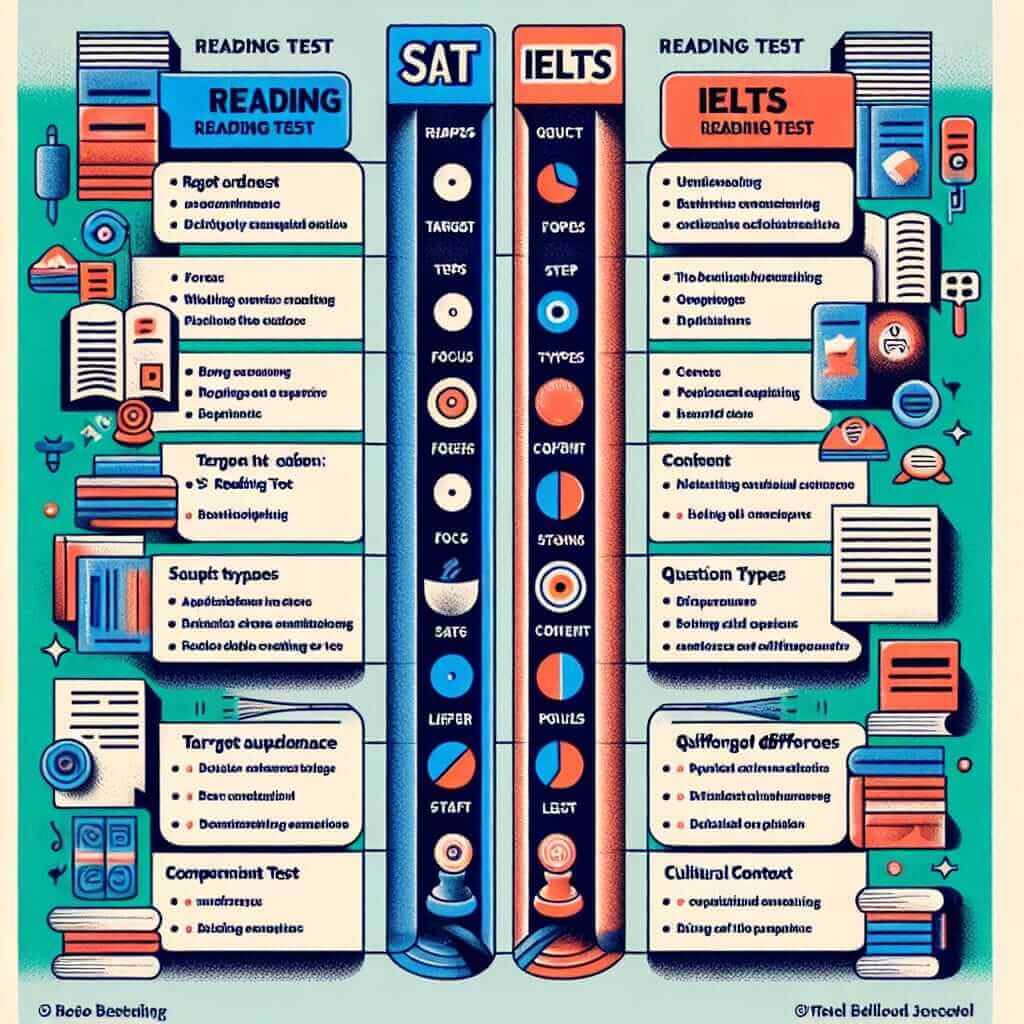Many students preparing for university entrance exams find themselves pondering the complexities of standardized tests. One common question that arises is: Which reading test is more challenging: the SAT or the IELTS? As an IELTS instructor with over two decades of experience, I’m here to shed light on this frequent query.
Understanding the Exams
Before delving into the comparative difficulty, let’s first understand the core purpose and structure of each exam:
SAT Reading Test
- Target Audience: Primarily designed for high school students seeking admission to universities and colleges in the United States.
- Focus: Assesses reading comprehension and reasoning skills within the context of academic passages.
- Content: Features passages from various disciplines, including humanities, social sciences, and natural sciences.
- Question Types: Multiple choice questions focusing on main ideas, supporting details, vocabulary in context, and author’s purpose.
IELTS Reading Test
- Target Audience: Designed for individuals whose first language is not English and who intend to study or migrate to a country where English is the primary language.
- Focus: Evaluates a candidate’s ability to comprehend and analyze written English in an academic setting.
- Content: Includes a wider range of text types, including academic articles, extracts from books, journals, magazines, and newspapers.
- Question Types: Offers a greater variety of question formats, such as multiple choice, identifying information (True/False/Not Given), matching headings, sentence completion, and short-answer questions.
Comparing the Challenges
While both tests assess reading comprehension, several key differences contribute to their perceived difficulty:
Text Complexity and Length:
- SAT: Passages are often complex but tend to be shorter in length.
- IELTS: Passages can vary greatly in length, and some candidates may find the longer texts more demanding. The IELTS also utilizes a wider range of vocabulary and grammatical structures.
Question Types and Strategies:
- SAT: The multiple-choice format allows for process of elimination, and the answer choices are often directly stated in the passage.
- IELTS: The diversity of question types requires a more flexible approach. Some question types, like “True/False/Not Given,” require careful inference and analysis.
Cultural Context:
- SAT: The content and language used often reflect American culture and perspectives.
- IELTS: The test aims for a more global perspective, featuring a broader range of English accents and cultural references.

Which is Harder?
The answer, unfortunately, isn’t a simple one-size-fits-all. The perceived difficulty of the SAT and IELTS Reading tests depends heavily on the individual’s strengths and weaknesses:
- Stronger in Vocabulary and Grammar? You might find the SAT more manageable, as its vocabulary, while challenging, is often tested in context.
- Adept at Skimming and Scanning for Specific Information? The IELTS might play to your strengths, as quickly locating key information within lengthy passages is crucial.
- Comfortable with Inferential Reasoning and Understanding Implied Meaning? The IELTS might present a steeper learning curve, as some question types demand a deeper understanding of the author’s tone, purpose, and implicit meaning.
Preparation is Key
Regardless of which test you find more challenging, diligent preparation is crucial for success:
- Practice Regularly: Familiarize yourself with the test format, question types, and timing.
- Read Widely: Expand your vocabulary and comprehension skills by engaging with a variety of English texts.
- Develop Effective Reading Strategies: Practice skimming, scanning, and close reading techniques.
- Seek Expert Guidance: Consider enrolling in a test preparation course or working with a tutor to refine your skills.
Conclusion
Ultimately, the “harder” test is subjective and depends on your individual learning style and strengths. By understanding the nuances of each exam and engaging in focused preparation, you can confidently tackle either the SAT or IELTS Reading test and achieve your academic goals.